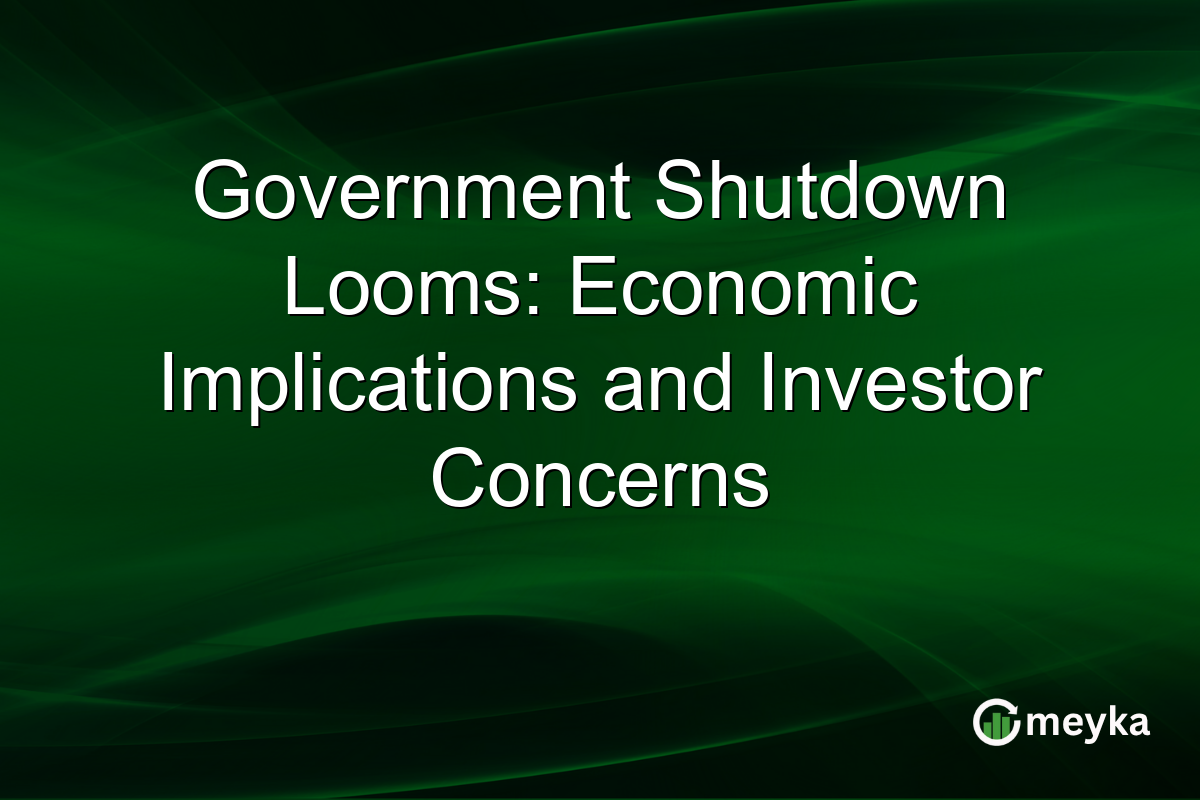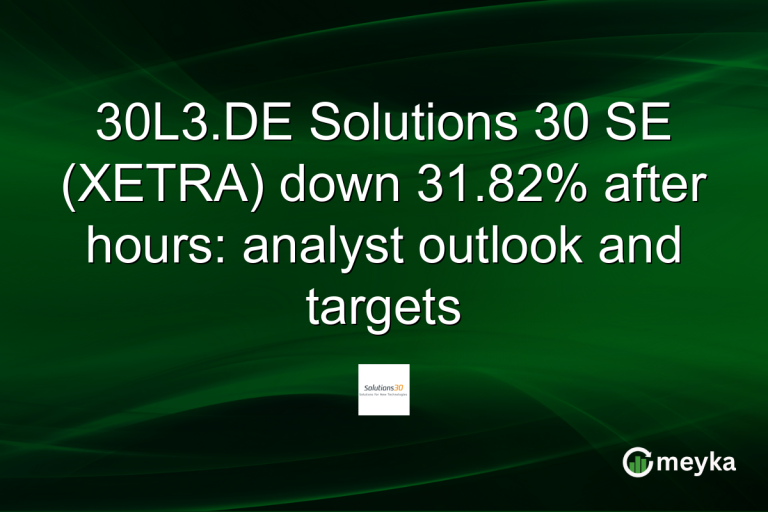Government Shutdown Looms: Economic Implications and Investor Concerns
With another potential government shutdown on the horizon, economic implications are at the forefront of concern. Delays in government operations could disrupt sectors like public services and financial markets. The focus keyword, “government shutdown impact,” highlights a larger economic challenge as investors assess risks related to market stability and financial growth.
Continue Reading on Meyka
This article is available in full on our main platform. Get access to complete analysis, stock insights, and more.
Read Full Article →





